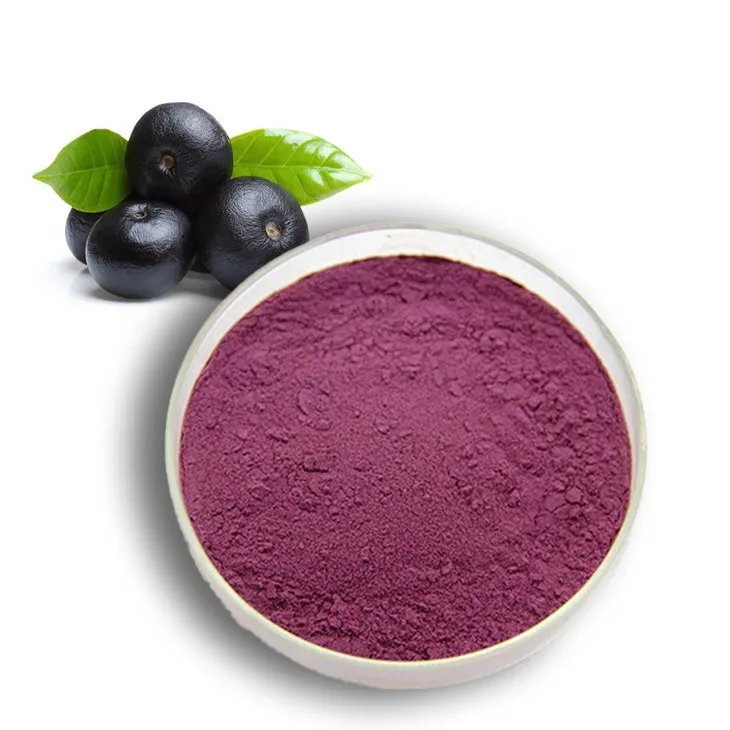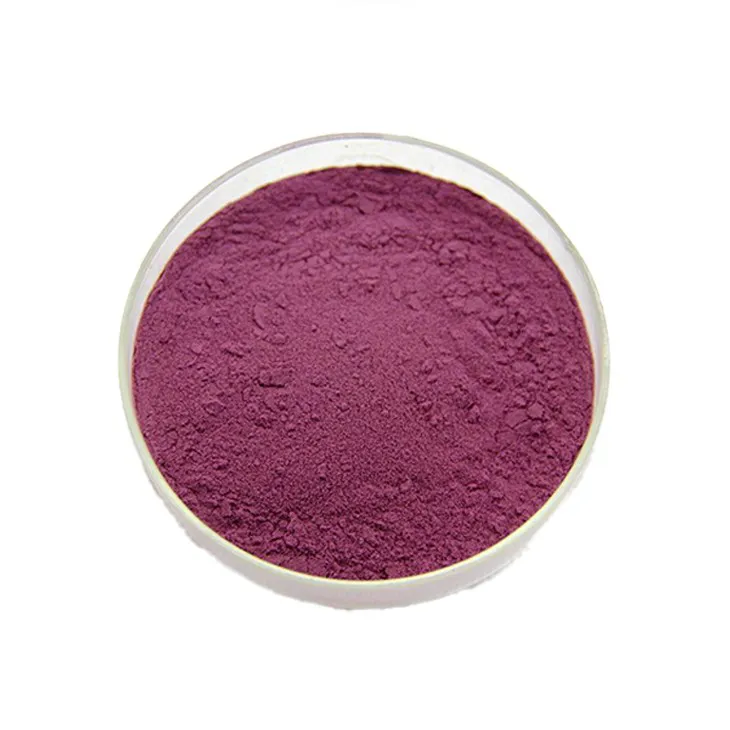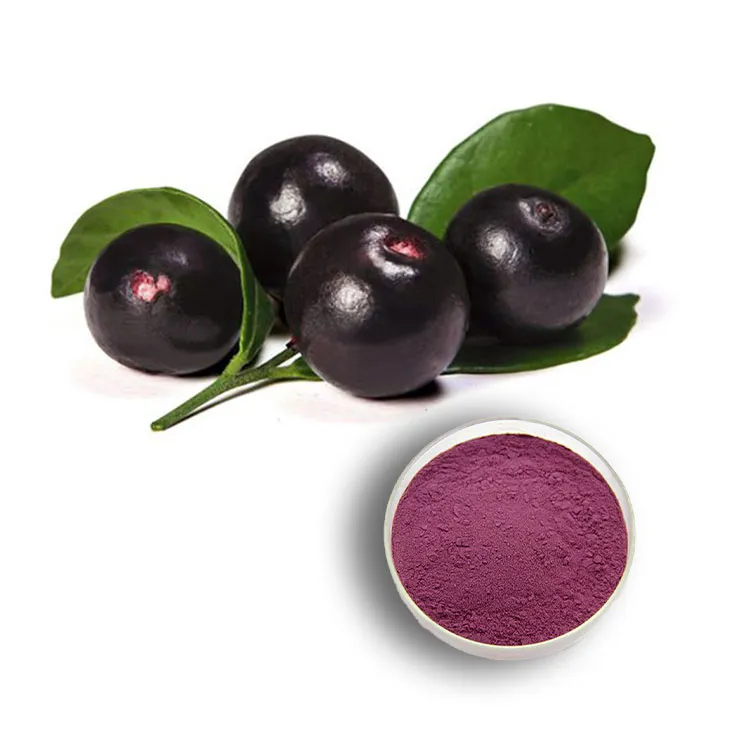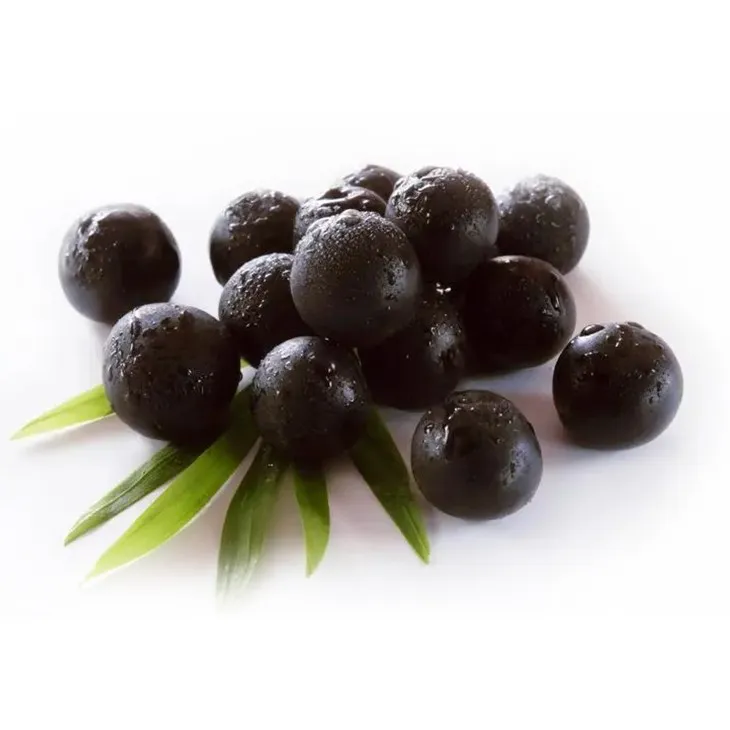- 0086-571-85302990
- sales@greenskybio.com
Components of Brazilian acai berry extract in fertilizers and feeds.
2024-12-01

1. Introduction
The Brazilian acai berry has been gaining significant attention in recent years, not only for its potential health benefits in human nutrition but also for its applications in agriculture. The extract from the acai berry contains a rich array of components that can be utilized in fertilizers and feeds. This article will explore the various components of the Brazilian Acai Berry Extract and their roles in fertilizers and feeds.

2. Components of Brazilian Acai Berry Extract
The Acai Berry Extract is a complex mixture of various bioactive compounds. Some of the major components include:
2.1. Amino acids
Amino acids are the building blocks of proteins. In the acai berry extract, there are several essential and non - essential amino acids. Essential amino acids such as lysine, methionine, and tryptophan are crucial for the growth and development of organisms. In feeds, these amino acids can improve the quality of protein available to animals, enhancing their muscle development, and overall growth. In fertilizers, amino acids can be absorbed by plants and used in the synthesis of proteins necessary for various physiological processes.
2.2. Fatty acids
The acai berry is rich in fatty acids, especially omega - 3 and omega - 6 fatty acids. These fatty acids play important roles in both plants and animals. In plants, they can be involved in cell membrane formation and function. In animals, omega - 3 and omega - 6 fatty acids are important for maintaining healthy skin, promoting proper brain development, and regulating the immune system. When used in feeds, these fatty acids can enhance the nutritional value of the feed, making it more beneficial for livestock.
2.3. Phytochemicals
Acai berries are also a rich source of phytochemicals. These include phenolic compounds, flavonoids, and anthocyanins.
- Phenolic compounds: These have antioxidant properties. In fertilizers, they can help plants to combat oxidative stress caused by environmental factors such as pollution and UV radiation. In feeds, phenolic compounds can also act as antioxidants in animals, protecting their cells from damage.
- Flavonoids: Flavonoids in the acai berry extract can have various effects. In plants, they may play a role in plant - pathogen interactions, potentially enhancing the plant's resistance to diseases. In animals, flavonoids may have anti - inflammatory properties, reducing inflammation in the body and improving overall health.
- Anthocyanins: These are responsible for the deep purple color of the acai berry. Anthocyanins have been shown to have antioxidant and anti - inflammatory properties in both plants and animals. In plants, they can also be involved in attracting pollinators.

3. Role of Brazilian acai berry extract in fertilizers
The components of the Brazilian acai berry extract can offer several benefits when used in fertilizers.
3.1. Stimulating root development
The bioactive compounds in the acai berry extract can promote root growth in plants. For example, amino acids can be used by plants to synthesize root - specific proteins that are involved in cell elongation and division. The phytochemicals may also play a role in signaling pathways that stimulate root development. A well - developed root system is crucial for plants as it allows for better anchorage in the soil, and more efficient uptake of water and nutrients.
3.2. Increasing nutrient uptake
Acai berry extract can enhance the ability of plants to take up nutrients. The fatty acids in the extract may be involved in maintaining the integrity of cell membranes in root cells, which are responsible for nutrient transport. The phenolic compounds can also affect the soil environment, making certain nutrients more available to plants. For instance, they can chelate with micronutrients such as iron and zinc, preventing their precipitation and making them more accessible for plant uptake.
3.3. Enhancing disease and pest resistance
The phytochemicals in the acai berry extract are particularly important for enhancing plant resistance to diseases and pests.
- Flavonoids and anthocyanins can act as natural defense mechanisms in plants. They can induce the production of phytoalexins, which are antimicrobial compounds that plants produce in response to pathogen attack.
- The antioxidant properties of phenolic compounds can help plants to withstand oxidative damage caused by pests and diseases. A healthy plant with a strong antioxidant defense system is less likely to be severely affected by pathogens and pests.

4. Role of Brazilian acai berry extract in feeds
The Brazilian acai berry extract also has significant potential in animal feeds.
4.1. Improving feed digestibility
The amino acids and fatty acids in the acai berry extract can enhance the digestibility of feed in animals. Amino acids can be easily absorbed and utilized by the animal's body for various metabolic processes. Fatty acids can improve the emulsification and absorption of fats in the digestive tract. This leads to more efficient utilization of the nutrients present in the feed, reducing feed waste and improving the overall productivity of animals.
4.2. Boosting productivity
By providing essential nutrients such as amino acids, fatty acids, and phytochemicals, the acai berry extract can boost the productivity of animals.
- In livestock such as cows, pigs, and chickens, the improved nutrition can lead to increased weight gain, better milk production (in cows), and higher egg production (in chickens).
- The anti - inflammatory and antioxidant properties of the phytochemicals can also improve the health of animals, reducing the incidence of diseases and improving their overall well - being. A healthy animal is more likely to be productive.
4.3. Contributing to sustainable livestock farming
The use of acai berry extract in feeds can contribute to sustainable livestock farming in several ways.
- Since the extract can improve feed digestibility, less feed is required to achieve the same level of productivity. This reduces the amount of feed resources needed, which is beneficial for the environment as it can reduce the pressure on land for feed production.
- The health - promoting properties of the extract can also reduce the need for antibiotics and other medications in livestock farming. This helps to address the issue of antibiotic resistance and promotes more sustainable animal husbandry practices.

5. Conclusion
The Brazilian acai berry extract contains a variety of components that can be effectively utilized in fertilizers and feeds. In fertilizers, it can stimulate root development, increase nutrient uptake, and enhance disease and pest resistance in plants. In feeds, it can improve digestibility, boost productivity, and contribute to sustainable livestock farming. Further research is needed to fully understand the optimal use of acai berry extract in these applications and to develop more efficient extraction and formulation methods. However, the potential of this natural product is clear, and it holds great promise for the future of agriculture.
FAQ:
Question 1: What are the main bioactive compounds in Brazilian acai berry extract that stimulate plant root development in fertilizers?
The acai berry extract contains various bioactive compounds such as polyphenols, flavonoids, and anthocyanins. These compounds are believed to play a role in stimulating plant root development. For example, polyphenols can act as signaling molecules that trigger root growth responses. Flavonoids may enhance the production of growth - promoting hormones in plants, and anthocyanins can contribute to overall plant health, which in turn supports root development.
Question 2: How does Brazilian acai berry extract increase nutrient uptake in plants when used in fertilizers?
The extract can improve the soil structure and microbial activity. By enhancing the soil structure, it allows for better root penetration and access to nutrients. The bioactive compounds in the extract also interact with plant roots, possibly by increasing the permeability of root membranes. This enables plants to take up more nutrients such as nitrogen, phosphorus, and potassium. Additionally, the stimulation of beneficial soil microbes by the extract can help in the solubilization and mobilization of nutrients, making them more available for plant uptake.
Question 3: What amino acids are present in Brazilian acai berry extract that are beneficial in animal feed?
The acai berry extract contains essential amino acids like lysine, methionine, and tryptophan. Lysine is important for protein synthesis in animals, methionine is involved in various metabolic processes including methylation reactions, and tryptophan is a precursor for neurotransmitter synthesis. These amino acids contribute to the overall growth, development, and health of animals when included in their feed.
Question 4: How do the fatty acids in Brazilian acai berry extract enhance the digestibility of feed in animals?
The fatty acids in the acai berry extract can improve the emulsification of fats in the digestive tract of animals. This emulsification process breaks down large fat globules into smaller droplets, increasing the surface area available for digestive enzymes to act upon. Additionally, certain fatty acids can modulate the gut microbiota in a way that promotes the production of digestive enzymes. This, in turn, enhances the overall digestibility of feed, allowing animals to extract more nutrients from the feed they consume.
Question 5: Can Brazilian acai berry extract completely replace other ingredients in fertilizers or feeds?
No, it cannot completely replace other ingredients. In fertilizers, while it offers benefits like root development and nutrient uptake enhancement, other elements such as macronutrients (nitrogen, phosphorus, potassium) and secondary nutrients are still essential for overall plant growth. In feeds, it is a valuable source of nutrients, but animals also require a balanced diet that includes proteins from different sources, carbohydrates, vitamins, and minerals. The acai berry extract is more of a supplementary ingredient that can enhance the quality and performance of fertilizers and feeds rather than a complete substitute.
Related literature
- The Potential of Acai Berry in Agriculture: A Review"
- "Acai Berry Extract in Animal Nutrition: Current Research and Future Prospects"
- "Bioactive Compounds of Acai Berry and Their Applications in Fertilization"
- ▶ Hesperidin
- ▶ citrus bioflavonoids
- ▶ plant extract
- ▶ lycopene
- ▶ Diosmin
- ▶ Grape seed extract
- ▶ Sea buckthorn Juice Powder
- ▶ Beetroot powder
- ▶ Hops Extract
- ▶ Artichoke Extract
- ▶ Reishi mushroom extract
- ▶ Astaxanthin
- ▶ Green Tea Extract
- ▶ Curcumin Extract
- ▶ Horse Chestnut Extract
- ▶ Other Problems
- ▶ Boswellia Serrata Extract
- ▶ Resveratrol Extract
- ▶ Marigold Extract
- ▶ Grape Leaf Extract
- ▶ blog3
- ▶ blog4
- ▶ blog5
-
The best lemon juice powder in nature.
2024-12-01
-
Organic Vitamin K2 Powder Suppliers
2024-12-01
-
Bulk purchase of L - tyrosine.
2024-12-01
-
Vitamin K2 Manufacturers
2024-12-01
-
100% Pure Natural Rutin.
2024-12-01
-
Chinese Citrus Bioflavonoid Suppliers.
2024-12-01
-
Saponin Extract
2024-12-01
-
Fig Extract
2024-12-01
-
Green coffee bean Extract
2024-12-01
-
Black Rice Extract
2024-12-01
-
Okra Extract
2024-12-01
-
Longan Extract
2024-12-01
-
Chia Seed Powder
2024-12-01
-
Marigold Extract
2024-12-01
-
Polygonum Cuspidatum Extract
2024-12-01
-
Medicinal Marshmallow Extract
2024-12-01





















